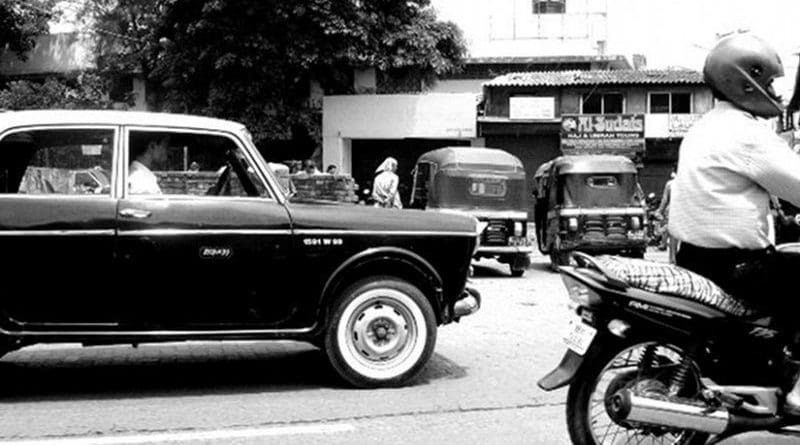Mumbai Mayhem – OpEd
By Arab News
Yet again Mumbai bleeds. Some 18 people have been killed in a vile synchronized attack at three locations and dozens injured. It is the city’s eighth such attack since the 1993 coordinated bomb blasts that killed 273 people and injured some 700.
It is impossible at present to say who did this. India’s Home Minister P. Chidambaram says it was “a coordinated attack by terrorists”. But what sort of terrorists? The words suggest a political agenda, which would mean either Hindu or Muslim militants, the latter either Pakistan-based or local. Certainly given the populist credentials of a number of India’s politicians, particularly in Mumbai, there will be those who will want to blame one or the other. The lack of any evidence will make no difference.
There is, however, the distinct possibility that this has nothing to do with religious divisions but with organized crime hiding behind a mask of militancy. It would not be the first time. The 1993 bombings have been presented as being the work of Muslim militants out for revenge for the city riots a couple of months earlier in which 900 people died, two-thirds of them Muslims. But the man behind the bombings, Dawood Ibrahim, was no militant. He was a gangster, the head of a Mumbai organized crime syndicate known as D-Company. Other members of the Mumbai mafia were also involved in the bombings, one of them a gold smuggler, Gul Muhammad.
The gold connection is potentially significant. The center for the gold industry in Mumbai is Zaveri Bazaar. It was one of the targets in the 1993 bombings along with the Bombay Stock Exchange, banks, hotels and a shopping mall as well as the Air India Building and the regional passport office. These suggest a business vendetta rather than communal revenge.
Zaveri Bazaar is again the target (it was also a target in August, 2003). So too this time is Opera House, which has nothing to do with music but rather is the center of the city’s thriving diamond business. The third attack was at Dadar further to the north, but police reports say that the explosion there was “low-intensity”. Those at Zaveri Bazaar and Opera House, however, were “medium-to-high intensity”. Was Dadar merely an add-on, the aim being to confuse? Gold and jewelry smuggling is big business in Mumbai. The possibility that this attack is linked to organized crime looms large. It certainly cannot be ruled out — all the more so because Indian intelligence have suggested that D-Company is involved in the Wednesday’s blasts and that they bear the same hallmarks as the 1993 blasts. As for Dawood, said to be involved in heroin, prostitution and gambling rackets in South and Southeast Asia, the Gulf and South Africa, he remains at large, although no one knows where. Indian officials, however, will insist in bringing Pakistan into the picture. They insist that Dawood also works for Pakistani intelligence and say that he spends his time commuting between Karachi and Dubai. Even more disturbing are the claims in the Indian media that there may be other interested parties in the picture. There are reports that the authorities are scrutinizing telephone calls from certain countries, but all that are, for now, just speculation. But all such speculations of any foreign link to the attacks need to be investigated and refuted.

